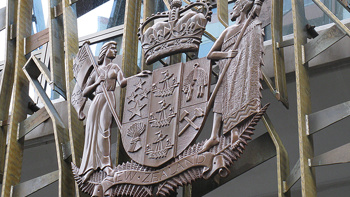
The families of victims caught up in some of the country's most high-profile cases of violence, sexual abuse and murder are calling for the Government to ditch its proposed repeal of the three strikes law.
An open letter will be presented to Justice Minister Andrew Little today in the hopes he will change his mind about proposals going to Cabinet this week to repeal the hard line law and order policy.
The changes could also see more offenders serving sentences in the community rather than behind bars.
Under the law, which passed in 2010, a person with three warnings for serious violent, sexual or drugs offending can be sentenced to maximum jail time without parole.
The letter - published in full on page 11 of today's Herald - is connected with the Sensible Sentencing Trust and signed by mostly relatives of people who have been killed or severely abused by offenders.
A few victims have also signed it.
For every relative's name is a victim's name - many of which are chillingly familiar: Sophie Elliott, Michael Choy, Philip Nisbet and 17-year-old Augustine Borrell, who was stabbed to death outside a party in Herne Bay in 2007.
"We, the undersigned, are all personally the victims of serious violent crime or close relatives of someone killed, maimed or sexually abused,'' the letter reads.
"We are all deeply concerned about the proposals to repeal the three-strikes law, make bail easier and generally to let people out of prison who need to be there.
"We believe the proposed changes are misconceived, misguided and certain to create more members of the club to which we, the undersigned, all belong - the club which no one wants to join.''
A request for comment was made to Little's office, but a response was not received before deadline last night.
However, last week he stressed that the changes being made would be a "modest'' package of measures.
"We're not doing wholesale reform until we get a good public debate going.''
He told media that the existing option of home detention for sentences of under two years in prison was being used less by judges.
"The proposal that's going before Cabinet is to give a bit of a statutory signal that we want more promotion of that as an alternative to prison,'' Little said.
Emma Stevens lost her brother and best mate - Matthew Stevens - when he was stabbed to death before being dumped in bush beside Paekakariki Hill Rd, Wellington, in 2014.
His death was made to appear as if he had been killed in a car crash.
Of the three people involved in the incident - including a woman who lured him to her house before he was set upon - one had only been out of prison for about three months before Stevens' murder.
Emma Stevens told the Herald that almost four years later she continued to struggle, particularly over the circumstances of her brother's death.
The idea people who reoffended could serve arguably easier sentences through home detention, for example, was something she could not comprehend.
"For me, it's like the justice system is really offender-focused and for you to understand that, unfortunately you have to lose someone in this horrific way," she said.
"It has to really be victim-focused and I don't think that this is a fair thing for victims. I believe that these three strikes are in place for the protection of victims in public safety.
"I don't think the answer is having these evil people back into society."
She said the possibility of having the three-strikes rule removed was dangerous.
"These are the people who reoffend and reoffend. It's not for drug-use and things like that.
"This is for serious offending - grievous bodily harm, rape, those sorts of things. I just feel it's really concerning."
Take your Radio, Podcasts and Music with you









